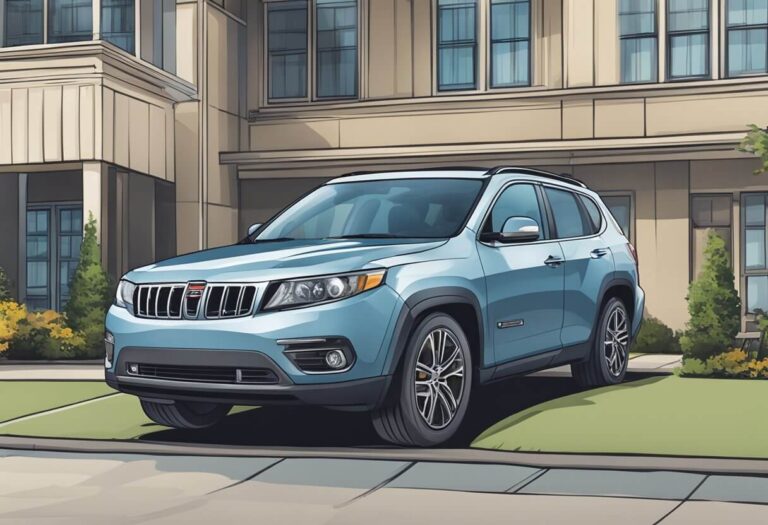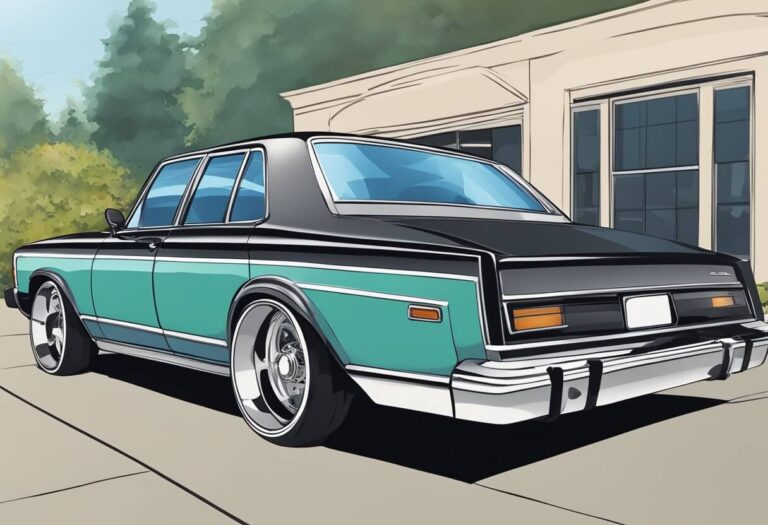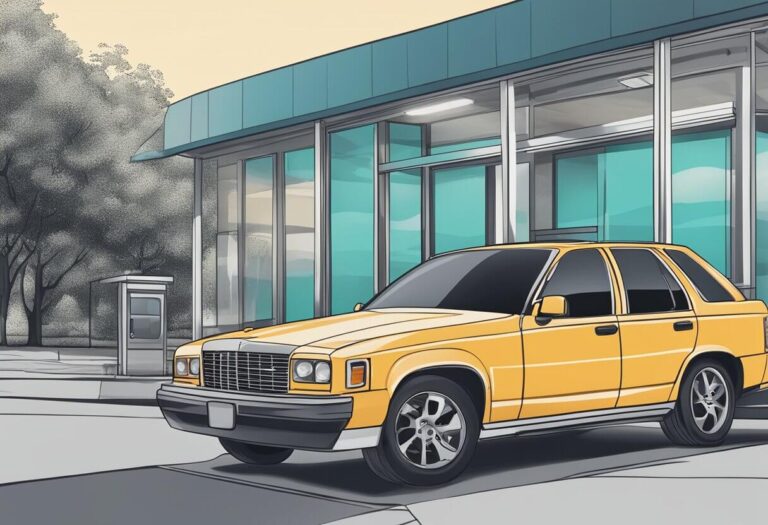Legal Window Tint Limits in Tennessee: A Comprehensive Guide

Have you ever wondered, “What is the legal tint in TN for car windows?” Tinted windows are a popular choice for many vehicle owners, providing style, privacy, and protection from the sun’s harsh rays. However, Tennessee has specific laws regulating how dark the window tint can be, and it’s crucial to understand and comply with these regulations.
In this comprehensive guide, we’ll dive deep into Tennessee’s window tinting laws, exploring the legal limits, exceptions, penalties for violations, and the latest tinting technologies. By the end, you’ll have a clear understanding of what constitutes a legal tint in Tennessee, ensuring you avoid costly fines and stay on the right side of the law.
So, let’s get started!
Tennessee Window Tint Laws Explained
In Tennessee, the window tinting laws were first enacted in 1990. These laws establish the legal limits for how dark the tint on your vehicle’s windows can be, measured by the percentage of Visible Light Transmission (VLT).
Windshield Tint Limits
For the windshield, Tennessee law mandates that the tint must allow more than 70% of light to pass through. This means that the combined tint of the windshield and any aftermarket film cannot exceed 30% darkness.
It’s important to note that non-reflective tint is permitted along the top of the windshield, above the manufacturer’s AS-1 line (typically located a few inches from the top of the glass).
Front Side Window Tint Limits
When it comes to the front side windows (the windows to the left and right of the driver), the tint must allow more than 35% of light to pass through. In other words, the combined darkness of the window tint and factory tint cannot exceed 65%.
Back Side and Rear Window Tint Limits
The same limit of allowing more than 35% of light transmission applies to the back side windows (behind the driver) and the rear window. This level of tint provides privacy while still ensuring sufficient visibility for safety purposes.
It’s important to note that these tint limits apply to all vehicle types in Tennessee, including cars, SUVs, vans, and trucks.
Exceptions and Additional Regulations
While Tennessee’s window tinting laws establish clear limits on tint darkness, there are a few exceptions and additional regulations to be aware of.
Reflective/Mirrored Tint Rules
Tennessee prohibits the use of reflective or mirrored tint on the front and back side windows. These types of tints can create a mirror-like appearance, which can be distracting and potentially dangerous for other drivers.
Window Tint Sticker Requirements
Every vehicle with legally tinted windows in Tennessee must have a sticker identifying the tint on the driver’s side window. This sticker should be placed between the tint film and the glass, displaying the name and contact information of the tint installer, as well as the words “complies with Tennessee Code Annotated, § 55-9-107.”
Medical Exemptions for Darker Tints
Tennessee tint law allows for medical exemptions, permitting individuals with conditions that are adversely affected by ultraviolet light to have darker tints than the legal limits. However, a physician’s statement certifying the need for reduced light transmission must be kept in the vehicle at all times.
Other TN Tint Law Provisions
- No specific colors of tint are explicitly restricted in Tennessee, allowing for a wide range of customization options.
- There are no restrictions on side mirror tints.
- Window tint manufacturers and retailers are not required to certify that their films meet Tennessee’s tint laws, but vehicle owners are responsible for ensuring compliance.
Understanding Visible Light Transmission (VLT) Percentage

At the core of Tennessee’s window tinting laws is the concept of Visible Light Transmission (VLT) percentage. This measurement indicates the amount of visible light that can pass through the combined tint of the window glass and any aftermarket film.
A lower VLT percentage means a darker tint, while a higher percentage indicates a lighter tint. For example, a 5% VLT tint is considered very dark, allowing only 5% of visible light to pass through, while a 50% VLT tint is much lighter, permitting 50% of light transmission.
Most vehicle owners opt for tints in the 20% to 35% VLT range, as these levels provide a good balance between privacy, heat rejection, and legal compliance. However, it’s essential to ensure that the tint you choose meets Tennessee’s legal limits, especially for the windshield and front side windows.
Penalties for Illegal Window Tint in Tennessee
Violating Tennessee’s window tinting laws can result in costly penalties and fines. If you’re stopped by law enforcement and your vehicle’s tint is found to be too dark or non-compliant, you may receive a citation.
The fines for window tint violations in Tennessee can range from around $100 to over $230, including court costs. These fines can quickly add up, especially if you receive multiple citations for the same offense.
It’s important to note that law enforcement officers can use portable digital devices to measure the VLT percentage of your vehicle’s tint on the spot, making it difficult to argue against a violation.
To avoid these penalties and ensure your safety on the road, it’s crucial to comply with Tennessee’s window tinting laws from the outset.
Choosing and Installing Legal Window Tint
If you’re considering tinting your vehicle’s windows in Tennessee, it’s essential to work with a reputable and licensed tint installer. A professional installer will be familiar with the state’s tint laws and can guide you in selecting a tint shade that complies with the legal limits.
When choosing a tint, consider not only the aesthetic appeal but also the level of heat rejection and UV protection it offers. Many modern tint films, such as ceramic or nanoparticle tints, provide excellent performance in these areas while still meeting legal VLT requirements.
During the installation process, ensure that the installer properly places the required sticker between the tint film and the driver’s side window glass. This sticker serves as proof of compliance with Tennessee’s tint laws.
By taking these precautions and working with a professional, you can enjoy the benefits of legal window tinting, including reduced interior heat, protection from harmful UV rays, and enhanced privacy, all while staying on the right side of the law.
New Window Tint Technologies
The world of window tinting is constantly evolving, with new technologies and materials emerging that offer improved performance and aesthetics. One of the most notable advancements is the development of ceramic and nanoparticle tints.
Ceramic tints are made from non-conductive ceramic particles that provide excellent heat rejection and UV protection while maintaining high levels of visible light transmission. These tints are durable, long-lasting, and can often meet legal tint limits while offering superior performance compared to traditional films.
Nanoparticle tints take this technology a step further, incorporating microscopic particles that can block infrared and ultraviolet rays while allowing visible light to pass through. These tints offer unparalleled heat rejection and UV protection, making them an attractive option for vehicle owners in Tennessee’s hot and sunny climate.
As these technologies continue to advance, it’s possible that Tennessee’s tint laws may evolve to accommodate new materials and performance standards. It’s essential to stay informed about any changes in the laws and consult with a professional tint installer to ensure compliance with the most up-to-date regulations.
In conclusion, understanding and complying with Tennessee’s window tinting laws is crucial for vehicle owners who want to enjoy the benefits of tinted windows while avoiding costly penalties. By following the legal limits for tint darkness, obtaining any necessary medical exemptions, and working with reputable installers, you can enhance your driving experience while staying on the right side of the law.
Remember, the key to legal tinting in Tennessee lies in understanding the state’s regulations, choosing tints that meet the VLT requirements, and staying informed about the latest advancements in tinting technology. With this knowledge, you can confidently enjoy the style, privacy, and protection that tinted windows offer, all while avoiding any legal issues.






